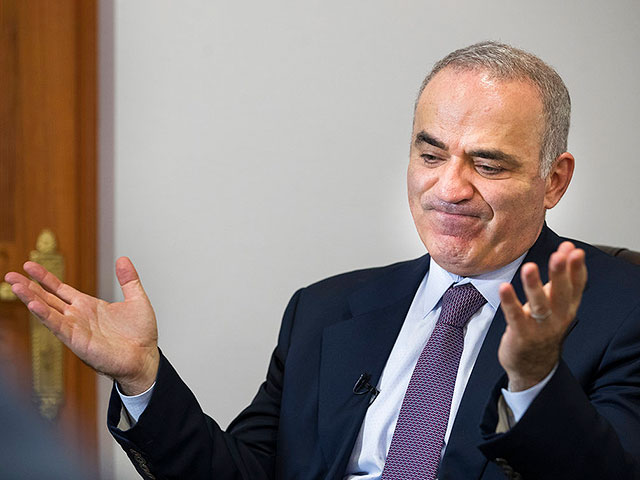- Wed. Apr 24th, 2024
Latest Post
Hamas reveals hostage in video after 200 days in captivity
Hersh Goldberg-Polin, an Israeli with an American passport, was abducted on October 7 at the Nova festival during the Hamas attack on Israel. He was seriously wounded, and his family…
Spotlight on technology needs and opportunities for small fleets by Loadsmart
During FreightWaves’ 3PL Summit on Wednesday, LoadSmart’s vice president of digital sales, Casey Monahan, participated in a fireside chat with Grace Sharkey. The discussion focused on leveraging technology for fleet…
Duralex awaits buyer in receivership: Can anyone save us like Pyrex did?
For the fourth time in twenty years, the glassmaker Duralex has found itself in receivership. The Orléans commercial court made the decision on Wednesday, April 24, after a one-hour hearing…
Russia Arrests World Chess Champion Garry Kasparov in Absentia
The Syktyvkar city court has issued an arrest in absentia for world chess champion Garry Kasparov, ex-State Duma deputy Gennady Gudkov, co-founder of the Free Russia Forum Ivan Tyutrin, and…
Kim Petras pulls out of Summer Fest performances due to health issues
Kim Petras recently announced that she will no longer be performing at upcoming festivals this summer due to undisclosed health issues. She shared this news on social media, expressing her…
An Arizona-based medical anthropologist draws on local narratives to enrich environmental science
Researcher Denise Moreno-Ramirez is using oral histories to enhance her environmental science research, shedding light on the impact of neglected toxic sites on communities. Emma Peterson, reporting for Inside Climate…
Brazilian-designed application to safeguard animals on roads
A project in Rio de Janeiro is aiming to reduce wildlife collisions in Brazil through the use of artificial intelligence (AI) technology. According to the Brazilian Center for Studies in…
Legal solutions do not resolve issues with China
Congress is pushing for a change in ownership of the popular video platform Tiktok in order to eliminate Chinese influence in the USA. However, this approach is seen as too…
Auction of Gustav Klimt’s Unfinished Painting Fetches 30 Million
At an auction in Vienna, a painting by Gustav Klimt titled ‘Bildnis Fräulein Lieser’ was sold for 30 million euros. This unfinished work was estimated to be worth between 30…
Island of Gems in the Red Sea
Zabargad Island, located in the Red Sea off the southern coast of Egypt, is known for its unique geological features. The island is composed of peridotite, a coarse-grained igneous rock…




